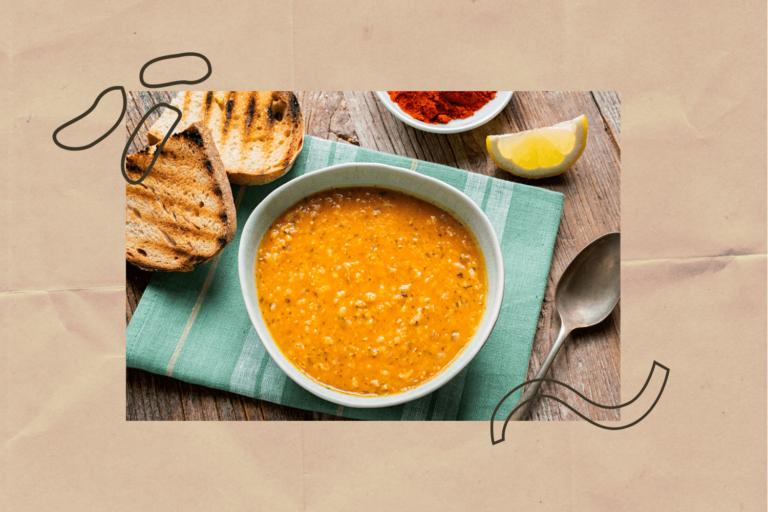Key takeaways
- On social media apps like TikTok, people share their favorite depression-fighting meals while they have little mental and physical energy to cook.
- There are simple, effortless tips you can try to make your meals more nutritious.
- Above all, experts say it’s important to give yourself grace.
Since the start of the pandemic, the hashtag #DepressionMealCheck has been trending on TikTok. Users of the social media app share meals they rely on when they suffer from depression and have little mental and physical energy to devote to cooking.
Although these meals take very little time to prepare, many can also be relatively low in nutrients.
Compared to an estimated global prevalence of depression of 3.44% in 2017, the prevalence of depression is estimated to have increased to 25% (7 times higher) since the start of the COVID-19 pandemic.
When managing your depression, easy snacks like crackers with butter and jam or chips can be great. But there are some small changes you can make to incorporate nutrients into your day effortlessly.
Nutrition and depression are linked
Depression and nutrition can go hand in hand. In fact, what you eat may play a key role in the onset, severity and duration of depression.
“When facing mental health issues like depression, it can be difficult to find the energy and motivation to prepare a healthy diet. » Lauren Harris-Pincus, MS, RDNfounder of Nutrition Starring You and author of “The Simple Pre-Diabetes Cookbook», says Verywell. “However, eating nourishing meals is important for supporting energy levels and even potentially improving mood.”
Depression can increase or decrease a person’s appetite depending on the individual. Skipping meals and having a strong desire for sugary foods are also common among people with depression. All of these factors can make it difficult to eat a balanced meal of nutritious foods.
And while comfort foods can have their place in any diet, neglecting nutrient-dense foods can lead to nutritional deficiencies, which can ultimately exacerbate your symptoms.
Specific nutrients that may help relieve symptoms of depression include:
- The amino acids tryptophan, tyrosine, phenylalanine and methionine.
- Omega-3 fatty acids DHA and EPA
- Selenium, iron and iodine
Foods with a low glycemic index (GI), such as many fruits and vegetables, whole grains and pasta, are more likely to have a positive effect on brain chemistry, mood and energy levels than other foods. High GI foods, such as candy and cookies.
Dietitian-Approved Suggestions for Nutritious “Depression Meals”
People who suffer from depression often find themselves skipping meals, eating sugary, comfort foods, and avoiding nutritious foods like vegetables and fish.
Although in the short term it may make people feel better, in the long term it may cause more harm than good.
“The best meals include a combination of protein, fiber-rich carbs, and healthy fats to help keep you satisfied and keep your blood sugar stable,” shares Harris-Pincus.
Mélissa Azzaro, RDN, LDdietitian and author of “A balanced approach to PCOS“, explains that people should focus on comfort foods that contain protein, fat, and fiber when looking for foods to manage their mental health.
This can include foods like:
- A cheese quesadilla with salsa and guacamole
- Grilled Cheese Sandwich with Tomato Soup
- A chocolate smoothie made with milk, protein powder, blueberries and cocoa
“Canned beans are one of my favorite choices for quickly preparing simple meals,” Elizabeth Shaw, MS, RDN, CPTnutrition expert at Shaw Simple Exchanges, says Verywell. “Tossing them in a tortilla with some bagged shredded lettuce and cabbage Whether it’s mashing them on avocado toast to boost protein and fiber, their versatility and convenience make them a pantry staple.
Kacie Barnes, MCN, RDNDallas-based dietitian and creator of Mom knows nutrition, Verywell tells that having a bowl of cereal with cold milk allows you to have a nutritious meal in less than a minute. She suggests adding slivered almonds and/or hemp seeds to increase protein and healthy fats.
An effortless stir-fry is a simple, go-to meal for Mélissa Mitri, MS, RDcreator of Melissa Mitri Nutrition, LLC. To make this, “heat instant brown rice, add cooked frozen stir-fried vegetables, and either edamame, cut-up veggie burger, or frozen shrimp for protein,” Mitri tells Verywell.
And finally, snack plates can make a nutritious meal. Elise Compston, RD, LDdietitian and founder of Compston’s Kitchentells Verywell that people can prepare a balanced snack plate by opting for “about half a plate of fruits and/or vegetables, protein (cheese, meat, nuts/seeds), and healthy fats (nuts, hummus, guac ), and something fun.”
Give yourself grace
If you’re suffering from depression and end up having a bowl of popcorn for dinner instead of a healthy meal, don’t be hard on yourself.
Chrissy Carroll, MPH, RD, LDN, USAT Level I triathlon coach and RRCA certified running coach, tells Verywell that people should “give themselves a little grace” if they eat a comfort meal that doesn’t contain vitamins or minerals.
“(If you) decide to eat ice cream for dinner, you don’t need to feel guilty or ashamed,” says Carroll. “Continue working with your mental health provider and consider seeing a registered dietitian for personalized help with meal ideas. Or, if you don’t want to cook at all, look for healthier microwaveable meals or prepackaged meal delivery services that require little preparation (e.g., Real Eats).
Having healthy and convenient foods on hand can help you prepare quick, nutritious and satisfying meals. Canned beans, nut butter, pasta, and fresh fruits and vegetables can help give comfort foods a boost in the nutrition department.
